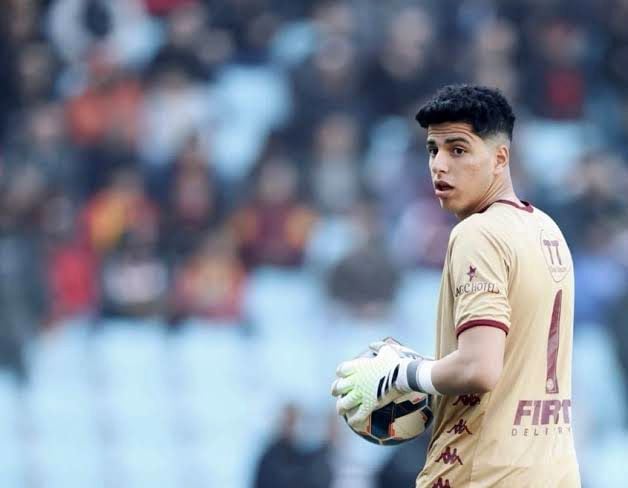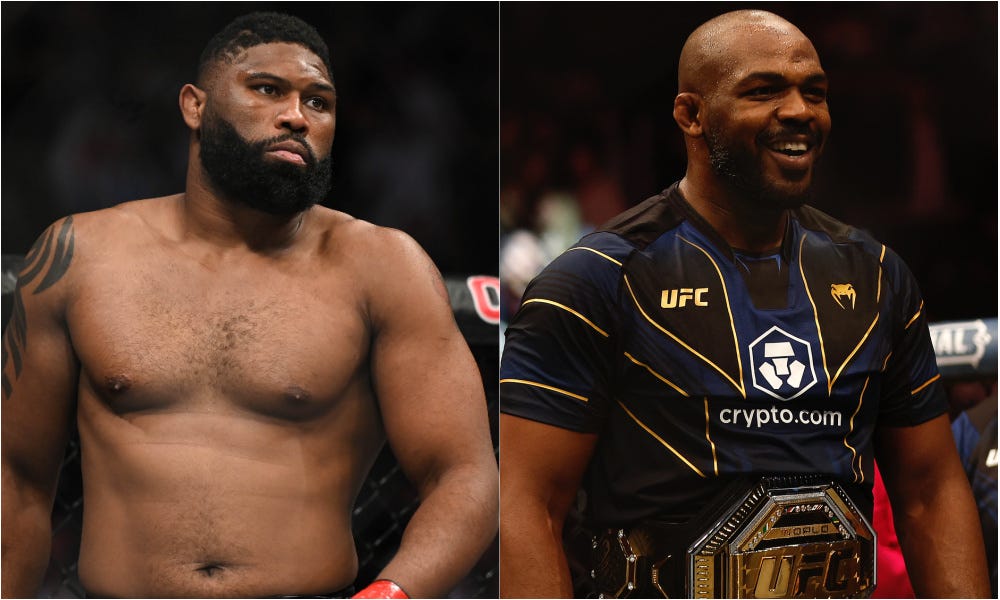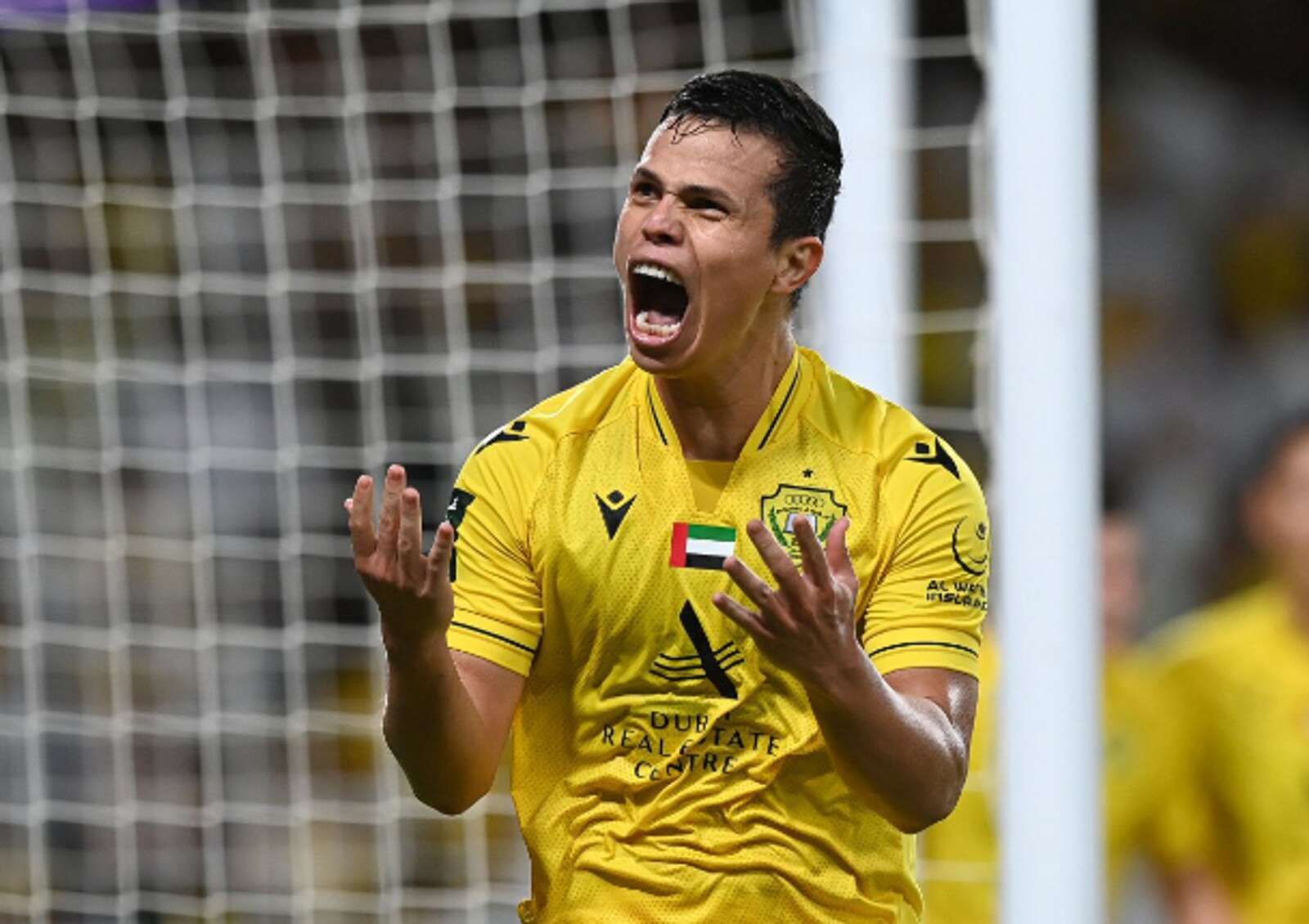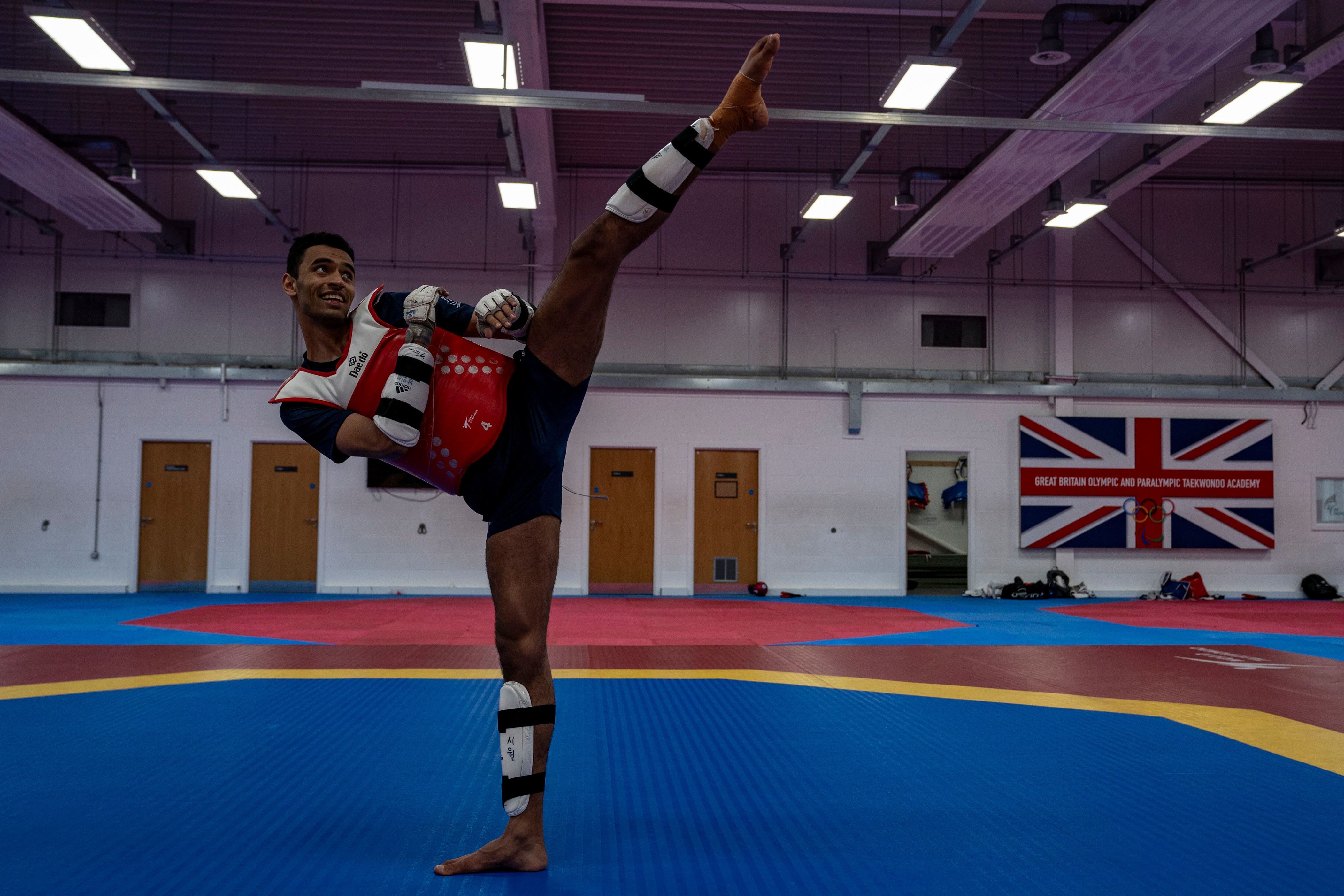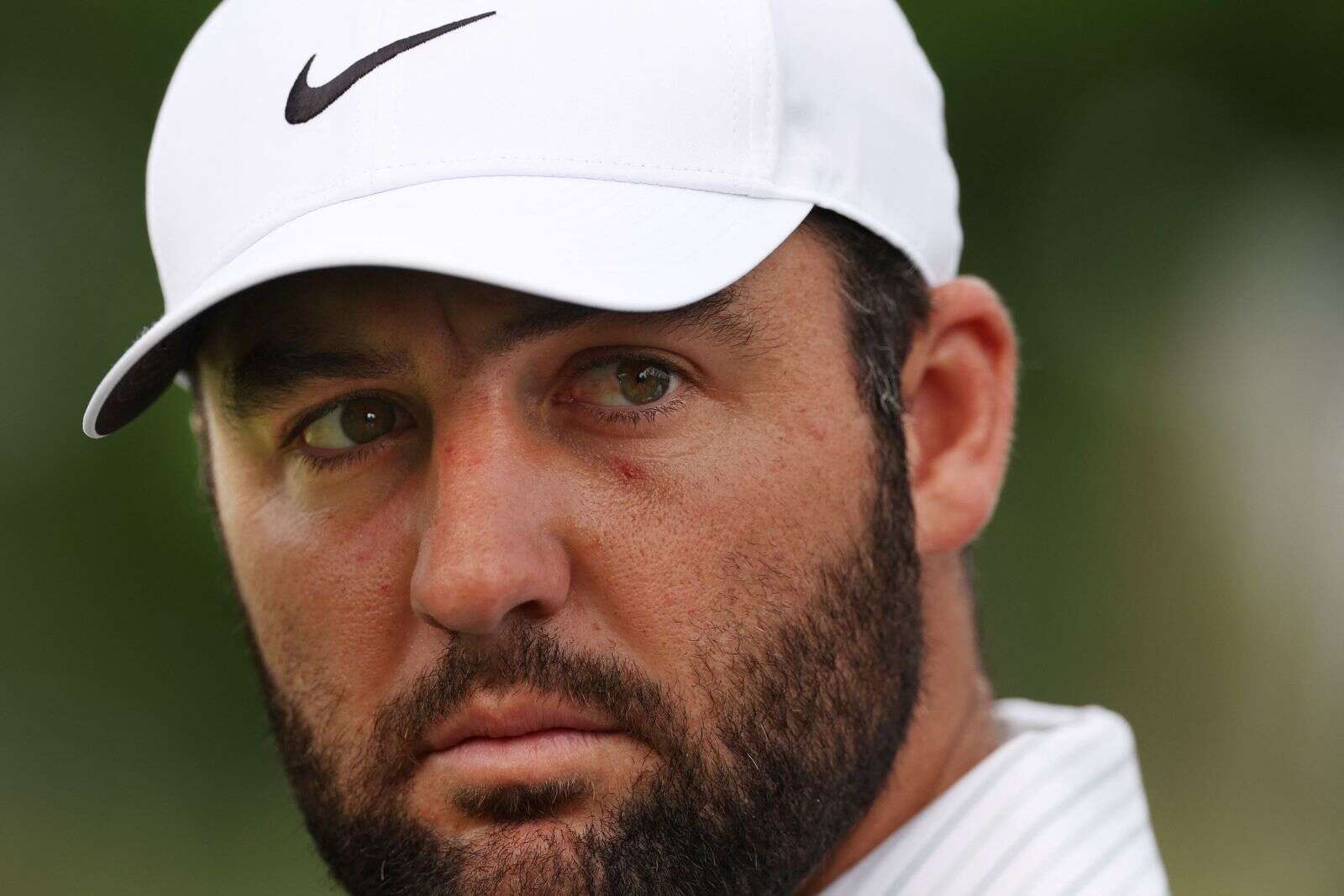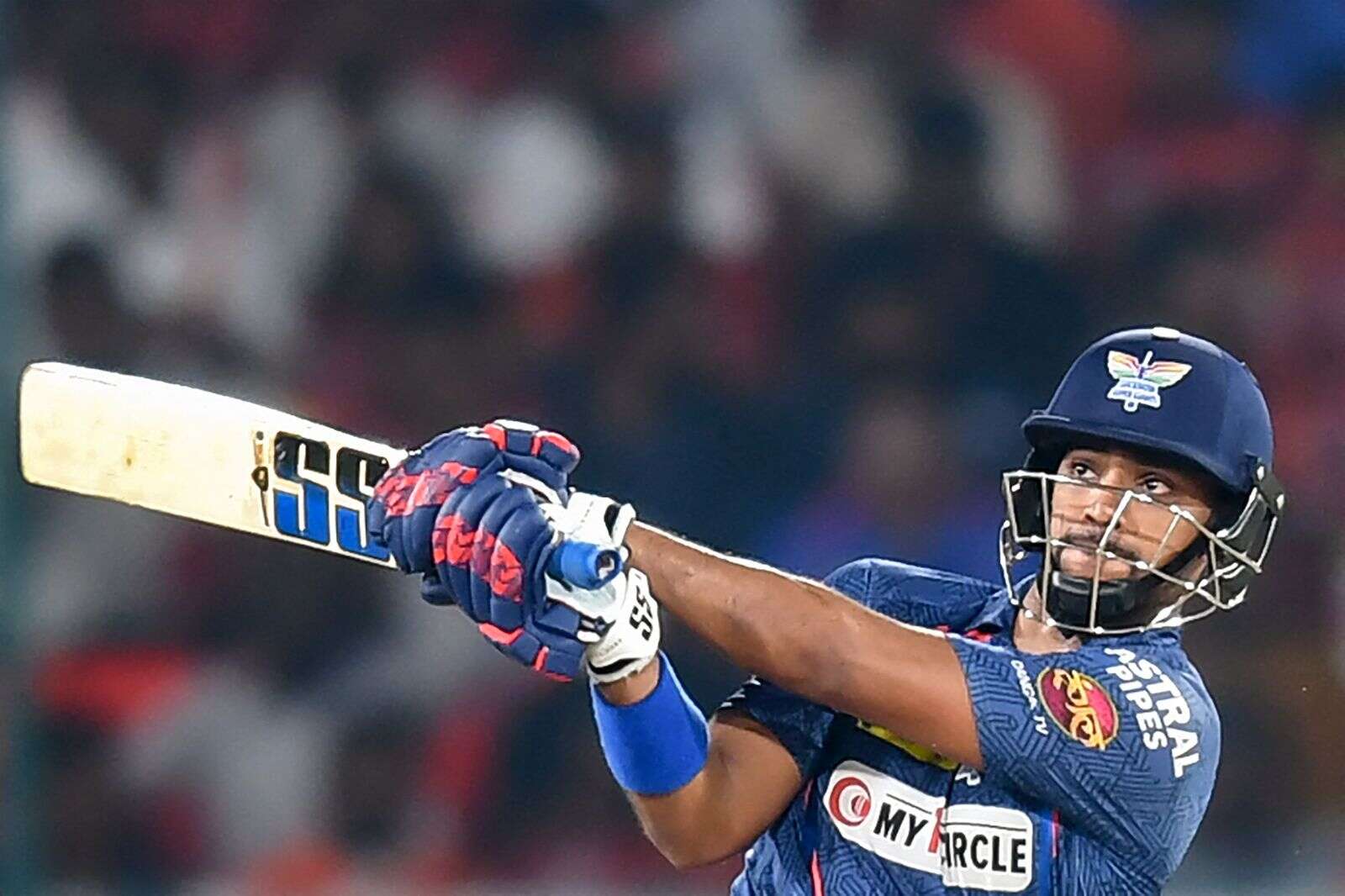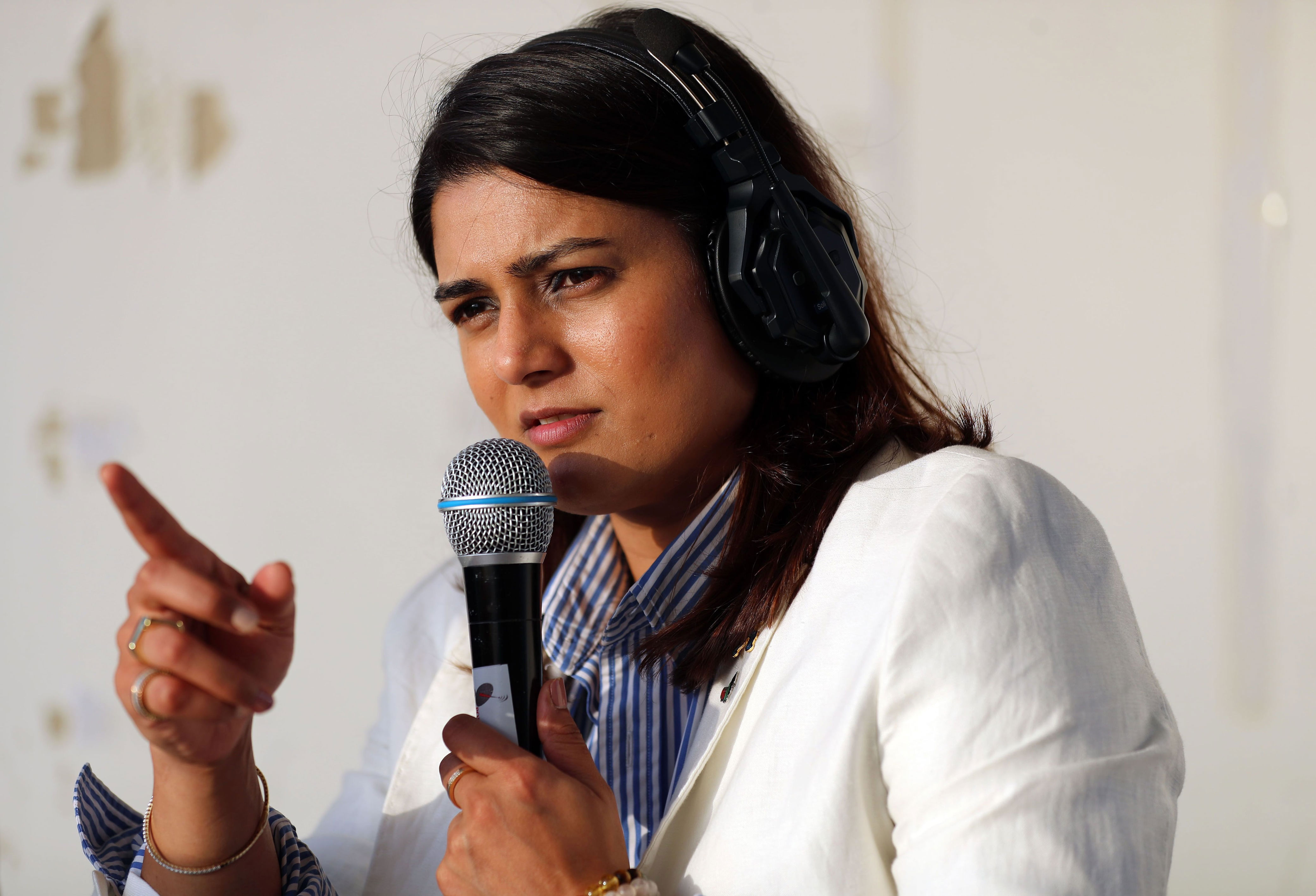
CHARVI BHATT: FROM CREASE TO COMMENTARY BOX FOR THE UAE'S TRAILBLAZING CRICKET PRESENTER
Charvi Bhatt sets down the microphone at the end of the first of the day’s two T20 matches and steals a few minutes before she has to interview the captains ahead of the next.
The turnaround is brief, and the action – back-to-back games with Women’s T20 World Cup places at stake – frenetic.
The days are long. She is on deck for the toss, an hour ahead of the start at the Tolerance Oval in the capital. Then she is in situ with her co-commentator for the duration of the 40 overs, with post-match duties to follow, too. All of which happens twice per day.
Matches at the qualifier in Abu Dhabi are played on alternate days, which should provide some respite. Instead of taking a break, though, on the off days she heads to a studio in Dubai to provide radio commentary on IPL matches for Talk 100.3.
The workload speaks of a special obsession with the sport. She settles back to ponder her role as the lone female voice in the cricket commentary boxes of the UAE, and how she got to this point.
“I watched the game all the time growing up,” Bhatt, 34, says. “Throughout my childhood, there wouldn’t be a match we would miss. That was how the game got into my blood.”
Her love of the game was inherited. As is often the case for cricket lovers, it was passed on from her parents. Although not the one most would usually say. “It was more my mum, to be honest,” Bhatt says.
Mother Nayna was part of a family of cricketers who would play every Sunday in Mumbai. Unlike her daughter, though, she never played the game herself.
“It was all down to cultural mindsets,” Bhatt says. “Her elder sister used to play really well and was involved when they played community matches, but support was not coming in. We all know how cultural mindsets can change over time.
“Mum never really got an opportunity, but when I got selected in the [UAE] side, I really didn’t want to miss out on that. I am glad my parents supported me throughout.”
Bhatt was two years old when her father, Ajay, a CFO for an advertising company, and mother relocated from Mumbai to Sharjah.
Despite showing an aptitude for the sport in childhood in knockabout games at family picnics, her chance to play formal cricket did not come till she was at her final year of high school at DPS Sharjah.
A development officer had been sent to UAE to see if there was scope to develop women’s cricket. There had been no provision for the sport for females till then.
“We participated in a double-wicket tournament because we could only get two girls from the school,” she says. “My partner and I won that tournament.”
The following year, the Asian Cricket Council scout went back to the school looking for potential players. The principal reminded her about Bhatt, who had by now left school.
“I got a call to go to the [Sharjah Cricket] stadium at 6.30pm that evening, and I still remember being the only girl walking into the ground. It was just me, with lots of boys around.
“On day two of the scouting process, they started to have a big rush because the schools started to send in girls who were interested in playing the game.”
She was enlisted in the pioneering UAE women’s team, and played from 2007 till 2018, much of it as captain.
The women’s game now is a world away from what she left six years ago, let alone what she was confronted with initially, 11 years before that.
The Emirates Cricket Board say there are around 700 women and girls involved in regular competitive cricket in the country. The national team are thriving, and Mahika Gaur, a product of the UAE, now plays for England.
“It is a massive difference,” Bhatt said. “It’s truly amazing to see the amount of time and resources that are being invested in the women’s game.
“There are so many girls coming up and saying, ‘Yes, this is the game we want to play'. And there are career opportunities opening up.
“Back in the day when I was a player, if I wanted to continue in the field I would be thinking, ‘What are the opportunities I have from a career perspective? I can become a coach, a trainer, a physio, if I have studied sports medicine – which I haven’t'. So, what else can I do?”
The answer has turned out to be commentary, first on the radio, after a recommendation to a station in Sharjah.
“I thought they would show a recording of the game and I would have to speak over it,” she says of her first experience calling an IPL game on 106.2.
“I thought, ‘How hard can it be?’. I walked into the studio, they put me on live, and said, ‘How about you do this for two overs? Somebody will be there to keep you company, but we will leave you on, and see how it goes'.
“It went well. I enjoyed it, and they said they would do this for a week. After that we could see if I wanted to continue for the rest of the tournament.”
The following year, in 2017, she was on duty for her first live streamed game, when Pakistan's women hosted New Zealand in Sharjah.
“TV and radio commentary are very contrasting,” Bhatt says. “Radio is a lot more descriptive. You have to describe every little detail to create a visual.
“TV commentary is very analysis heavy. You are analysing the game to see why a particular fielder is placed where they are, where the bowler is going to bowl, what the averages look like.
“They are two contrasting fields, but both interesting and challenging.”
Although the “cultural mindsets” she says her mother faced have advanced, she says she has still faced resistance in a male-dominated workplace.
“I have had a very two-sided response,” she says. “There have been a few, such as Harsha Poojary and Neeil Ojha, who have been supportive – very, very encouraging and want to help you do better.
“Then there was another group who are always trying to bring you down, saying, ‘You are a girl, what do you know about the game? What do you know about speaking on the mic? You have to have played to say something about the game'.
“I have been blessed to have been on the other side more often than not. Because I am the only female voice in cricket in the Middle East – there is no one else doing it at this level – it is a lot of commentary day in and day out.
“The male commentators don’t generally know that I have also played the game. They say, ‘How does she know about the game?’.”
She says her most gratifying moment came when she was on air when Muttiah Muralitharan, the Sri Lanka great, was present in the studio.
“He asked one of the other commentators, ‘Who is she?’. We were all on air and he was curious to know what a female was doing calling a men’s game in the World Cup.
“He stayed back after he was off air to hear what I had to say. When he walked out, I remember him saying, ‘She is very good. She has the technical words right', which was when one of the other commentators said I had played to a good level.
“When he returned for the final, he came back and said he wanted to be on air with me, and was very supportive. I was overwhelmed. You don’t often get legends of the game coming and giving you recognition. I was truly blessed.”
While she will always treasure Murali’s words, the feedback she gets most regularly comes from her two biggest fans – her mum and dad.
“They are always taking the credit,” she says. “Whenever we meet someone new, they always say, ‘Do you know who she is? Have you heard this voice on radio? She is the one who does it!’.
“My mum is my biggest critic, to be honest. She was listening to me a couple of days ago and she dropped me a text saying, ‘You’re too loud. Tone it down. You don’t need to scream into the mic'. But they are extremely proud.”
2024-05-03T18:12:31Z dg43tfdfdgfd
